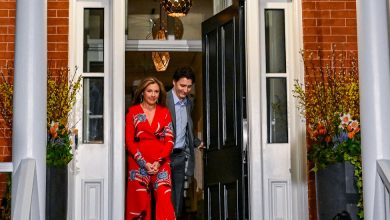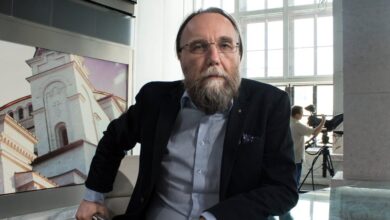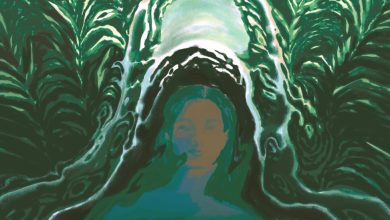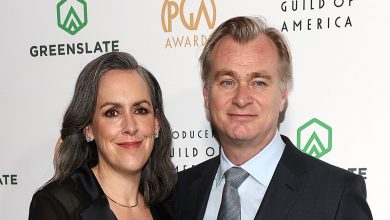Your Tuesday Briefing


Russian armored vehicles yesterday near Rostov-on-Don, a Russian city about 60 miles from Ukraine.Credit…Sergey Ponomarev for The New York Times
Russia orders troops into Ukraine
Vladimir Putin, the Russian president, ordered his Defense Ministry yesterday to deploy troops to carry out “peacekeeping functions” in Donetsk and Luhansk, two Russia-backed separatist territories in Ukraine, escalating a conflict that Western officials warn could explode into one of the biggest armed clashes in Europe since World War II.
In an emotional and aggrieved address to the Russian people, Putin hinted at the possibility of a wider military campaign and laid claim to all of Ukraine as a country “created by Russia.” The speech came after a day of extensive reports in the Russian news media of Ukrainian shelling against civilian targets in the separatist regions. Ukraine has denied it.
Putin’s order was condemned as a violation of international law and Ukraine’s sovereignty by several nations at an emergency meeting of the U.N. Security Council last night. President Biden will impose economic sanctions on the two breakaway regions, but he stopped short of imposing any penalties directly on Russia. European allies said they supported enacting the initial sanctions.
Here are the latest maps of the conflict.
Historical background: In his speech, Putin declared Ukraine an invention of the Bolshevik revolutionary leader, Vladimir Lenin. As a misreading of history, it was extreme. And it was not Moscow that granted Ukraine’s independence in 1991, but the Ukrainian people, who voted resoundingly to leave the Soviet Union in a democratic referendum.
What’s at stake in Russia’s invasion of Ukraine
An armed clash on Europe’s border could send shock waves through the global economy. Already, the promise of punishing U.S. sanctions and the potential for Russian retaliation has pushed down stock returns and driven up gas prices. An outright attack could cause energy and food prices to spike, fuel inflation fears and spook investors, threatening economies around the world.
Europe gets nearly 40 percent of its natural gas and 25 percent of its oil from Russia. Heating and gas bills in the region are already soaring, and natural gas reserves are at less than a third of capacity, with weeks of cold weather ahead. European leaders have accused Russia of reducing supplies to gain a political edge.
A nationwide attack on Ukraine could also result in one million to five million refugees, with many of them pouring into Poland, Pentagon officials have estimated. Many of the nearly 5,000 U.S. troops who arrived in Poland last week are working with Polish forces to set up processing centers for tens of thousands of people, including Americans, who are expected to flee if Russia launches a full-scale invasion.
Traumatic memories: For Jewish communities in Ukraine, the threat of war has stirred memories of past horrors. In Odessa, successive waves of violence, from Jewish pogroms in the early 20th century to mass executions by the Nazis in World War II, have left indelible scars.
England moves to lift its coronavirus restrictions
After almost two years of restrictions, Boris Johnson, the British prime minister, yesterday announced an imminent end to England’s remaining legal curbs and most free testing, making his country an outlier in its handling of the pandemic.
Starting Thursday, routine contact tracing will end, and those who test positive for the virus will no longer be legally obliged to isolate themselves, although they will be urged to do so. The supply of free tests, which are available widely, will end on April 1 for all except the most vulnerable, effectively forcing people to pay to find out whether they are infected. Enhanced sick pay to support those who have Covid-19 will end in late March.
The announcement places England far ahead of most other European nations in the speed with which it hopes to return to normal life. It comes a day after an announcement that Queen Elizabeth II had tested positive for the virus. Johnson’s political opponents have suggested that he is seeking to distract attention from a police investigation into whether he broke his own lockdown laws last year.
Quotable: “It is time that we got our confidence back,” Johnson said. “We don’t need laws to compel people to be considerate to others. We can rely on that sense of responsibility toward one another.” He added, “Let us learn to live with this virus.”
From the opposition: “This is a half-baked announcement from a government paralyzed by chaos and incompetence,” said Keir Starmer, leader of the Labour Party, who criticized the decision to end free testing to most people. He described the approach as one “which seems to think that living with Covid means simply ignoring it.”
In other pandemic developments:
-
If you’ve already had one booster shot, you are unlikely to need another for many months, and perhaps not for years, according to a flurry of new studies.
-
Mask-wearing at a national park in Rwanda protected great apes from becoming sick, a report suggests.
THE LATEST NEWS
Around the World
-
Sky-high energy prices in Europe are upending people’s lives. While some are installing solar panels, others are stoking their wood-burning stoves or forgoing haircuts to make ends meet.
-
China has been blocking imports with parts made in Lithuania after the Baltic nation sought closer ties with Taiwan.
-
An effort to memorialize gold and silver mines in Japan is the latest flash point with South Korea over Japanese colonial abuses during World War II.
-
A data leak from the bank Credit Suisse has opened a peephole into the private wealth of several powerful figures across the Middle East, raising new questions about self-dealing.
News From the Americas
-
Lawsuits from white farmers have blocked $4 billion of pandemic aid that was allocated to Black farmers in the American Rescue Plan.
-
In the wake of similar moves in Mexico and Argentina, Colombia has decriminalized abortion.
-
After an occupation by truckers protesting vaccine mandates, Canada wonders: Was it an aberration, or was it the beginning of a political shift?
-
Horse racing officials overturned the results of last year’s Kentucky Derby because the winner, Medina Spirit, failed a drug test after winning the race.
A Morning Read
The French authorities are installing “sound radars” to detect and photograph vehicles making excessive noise, such as roaring motorcycles or souped-up scooters. At the end of the testing period, in 2023, the city plans to start handing out fines to vehicles that break noise-level rules.
“Noise reduces the life expectancy of Parisians by nine months,” David Belliard, a deputy mayor in Paris, said. “It’s a matter of public health.”
Lives Lived
Jamal Edwards, the founder of the music YouTube channel SB.TV, which gave an early platform to British rap stars including Stormzy, Skepta and Dave, died on Sunday at 31.
ARTS AND IDEAS
New ways to bake
Baking is a science: If you measure ingredients carefully and mix them together correctly, the recipe should turn out as planned. As in all sciences, though, experimentation is the key — and sometimes doing things the wrong way can yield exciting results.
A new feature from NYT Cooking presents 24 innovative baking recipes. Did you know that 7Up can replace baking soda and baking powder in a cake? Or that (carefully) dunking a tray of freshly cooked brownies into an ice bath can make them rich and fudgy?
For more — including recipes for a mango pie, Earl Grey cookies and a single-bowl chocolate cake — see the full collection here.
PLAY, WATCH, EAT
What to Cook
Give leftover rice a new lease on life in this sheet-pan bibimbap.
What to Watch
In “Dog,” Channing Tatum’s directing debut, the actor plays an Army Ranger on a healing journey with a canine comrade.
What to Read
“The Founders” tells the story of how an ensemble of entrepreneurs, including Elon Musk and Peter Thiel, created PayPal.
Now Time to Play
Here’s today’s Mini Crossword, and a clue: Diner on “Gilmore Girls” (five letters).
Here’s today’s Wordle and the Spelling Bee.
You can find all our puzzles here.
That’s it for today’s briefing. Thanks for joining me. — Natasha
P.S. The Times won two George Polk Awards for investigative reporting about the assassination of Haiti’s president and U.S. airstrikes in the Middle East.
There is no new episode of “The Daily.”
You can reach Natasha and the team at [email protected].





